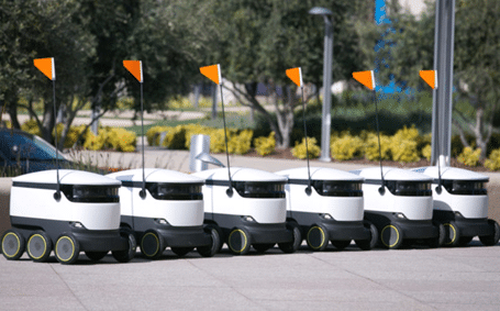Could AI Steal Your Job?
Authored by Michael Johnston via EvergreenGavekal,
Artificial Intelligence (AI) has been one of the hottest topics in business, finance, and technology over the past two quarters. While the concept of AI has been around since the 1950s, it wasn’t until November 2022 that AI went mainstream and became a “household topic” with the emergence of ChatGPT. Like many emerging technologies that suddenly gain momentum, AI has led to a range of emotions, including fear and excitement.
One of the prevailing real-world concerns about AI is whether it will significantly disrupt the labor market. This week, IBM CEO Arvind Krishna made waves by saying that the company is planning to pause hiring for roles that it believes could be replaced by AI in the coming years. Krishna took things one step further by prognosticating that she “could easily see 30% of that getting replaced by AI and automation over a five-year period.”
In this article, we examine the likelihood that AI will significantly disrupt the labor market by considering:
-
Historical examples of emerging technologies and labor disruption
-
How AI is being used in the workforce today
-
How AI could disrupt labor markets moving forward
Historical examples of emerging technologies and labor disruption
There are several historical examples of times that people wrongly predicted emerging technology would significantly disrupt labor markets, including:
-
The Automated Teller Machine (ATM): When ATMs were first introduced in the 1970s, many people thought they would replace bank tellers. However, while ATMs did automate some banking functions, they also made it possible for banks to offer more services and expand their hours of operation. As a result, the number of bank teller jobs actually increased.
-
The Internet: When the internet became widely available in the 1990s, some people predicted that it would lead to massive job losses. It didn’t take long before this proved to be a false narrative.
-
The Industrial Revolution: In the 19th century, the Industrial Revolution led to the mechanization of many jobs. While some workers did lose their jobs, the Industrial Revolution created many new jobs in manufacturing, transportation, and other industries. Wages at factories were higher than what individuals were making as farmers and, as factories became widespread, more managers and employees were required to operate them, increasing both the supply of jobs and wages.
How AI is being used in the workforce today
Today, a similar story is unfolding in the labor market. Take two real-world examples from the frontlines of business and technology:
-
Copywriting and marketing: ChatGPT and other generative AI technologies such as JasperAI have swiftly changed the way content is created. For example, at the technology company I founded, our copywriter used to take several days to produce an article, which had to be edited before distribution. In total, the end-to-end process took about a week which meant the company was producing 4 articles per month. Since beginning to leverage JasperAI, the company now produces 3-4 articles per week. That translates into more leads, which translates into more customers, which turns into higher revenue growth, and more hiring. Is our copywriter’s job safe? You bet. Using AI technology doesn’t replace the need for her or her role, it supercharges it and helps the company scale faster, leading to more hiring, not less.
-
Autonomous delivery robots: Starship Technologies is a high-profile technology company that has successfully completed over 4 million deliveries using its autonomous fleet of robots. It’s true that these robots have put humans out of work by replacing the need for people to physically deliver items. It’s also true that this technology has created hundreds of new, specialized, higher-paying jobs for technicians, managers, operations, and logistics specialists that ensure these robots get from point A to point B as intended. Plus, it’s helping solve a very real problem for retailers that unlocks growth and margin: last mile delivery.
How AI could disrupt labor markets in the future
While nobody has a crystal ball, AI has already been used to automate routine, repetitive tasks in fields such as manufacturing, data entry, and customer service. This has led to job losses in some industries, particularly in low-skill, low-wage jobs. As businesses continue to implement new AI technology, it’s reasonable to expect more of the same.
However, conversely, AI will continue to enhance productivity and drive efficiency, leading to economic growth which results in the creation of new jobs. Looking back at history, every time there have been concerns over the displacement of jobs due to technological advancements, new jobs have ultimately been created. It’s important to note that the impact of AI on the labor market will not be uniform across all industries and skill levels. Some industries and job categories will likely see significant job losses. However, it will be important for businesses and policymakers to prepare for these changes by investing in reskilling and upskilling programs to help workers transition to new industries and job categories.
So, could AI steal your job? The answer likely depends on your profession and industry. But just like previous technological inflection points, this disruption will create new opportunities as AI transforms work as we know it.
Tyler Durden
Mon, 05/08/2023 – 20:20
Zero Hedge’s mission is to widen the scope of financial, economic and political information available to the professional investing public, to skeptically examine and, where necessary, attack the flaccid institution that financial journalism has become, to liberate oppressed knowledge, to provide analysis uninhibited by political constraint and to facilitate information’s unending quest for freedom. Visit https://www.zerohedge.com

